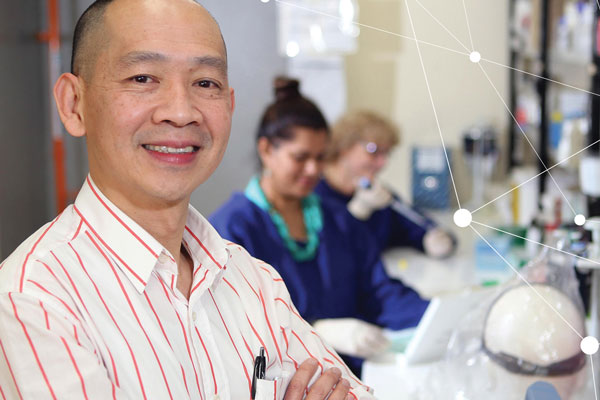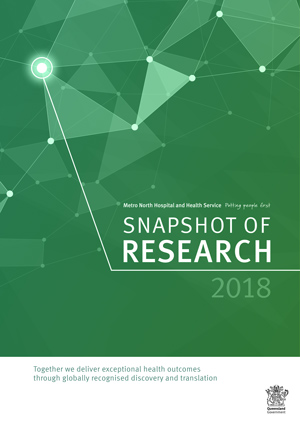Turning tide on deadliest cancer
A team at The Prince Charles Hospital Department of Thoracic Medicine is using new technology to advance lung cancer screening in a bid to increase survival rates worldwide, under the guidance of Professor Kwun Fong.
Lung cancer is the deadliest cancer in the world—it takes more lives than breast and ovarian cancers combined—a driving factor behind the scientist-clinician’s impressive track record in securing more than $20 million in funding across six grants, co-authoring more than 200 publications and mentoring more than 40 higher research degree students through the University of Queensland School of Medicine.
Professor Fong’s early work after completing his PhD in Brisbane led to highly-cited publications including a 2005 paper in the Journal of the National Cancer Institute on epidermal growth factor receptor gene mutations in lung cancer, which has been cited 1,464 times.
“Lung cancer accounts for almost 19 per cent of deaths because it is typically diagnosed at an advanced stage, which greatly reduces the efficacy of even the most cutting-edge treatments,” Professor Fong said.
Thanks to the generous participation of selfless patients, the team at TPCH established a lung cancer tissue bank which has enabled collaboration with The Cancer Genome Atlas project, through the US National Cancer Institute, National Institutes of Health.
The team is carefully annotating crucial clinical, demographic and outcome (survival and recurrence) data on lung cancer tissues, generously donated by research volunteers for nearly 20 years, to make possible new scientific laboratory-based discoveries, in collaboration with the University of Queensland Thoracic Research Centre.
Under Professor Fong’s leadership, the team is also part of a multicentre, international low-dose CT screening study which is recruiting 4,000 participants across Australia and Canada. Aimed at drastically improving the efficiency of CT screening for those at high risk, the trial is already saving lives.
“This trial aims to identify ways we can detect lung cancer in its early stages using state-of-the-art, low-dose CT scanners, incorporating Computer Aided Diagnosis (CAD) advanced imaging technology,” Professor Fong said.
“This should help in improving CT lung screening success rates selecting and screening those who are at highest risk, and thus, most likely to benefit.”
In 2018, Professor Fong was named Metro North Researcher of the Year in honour of his commitment and extensive contribution to the field of lung cancer research.


